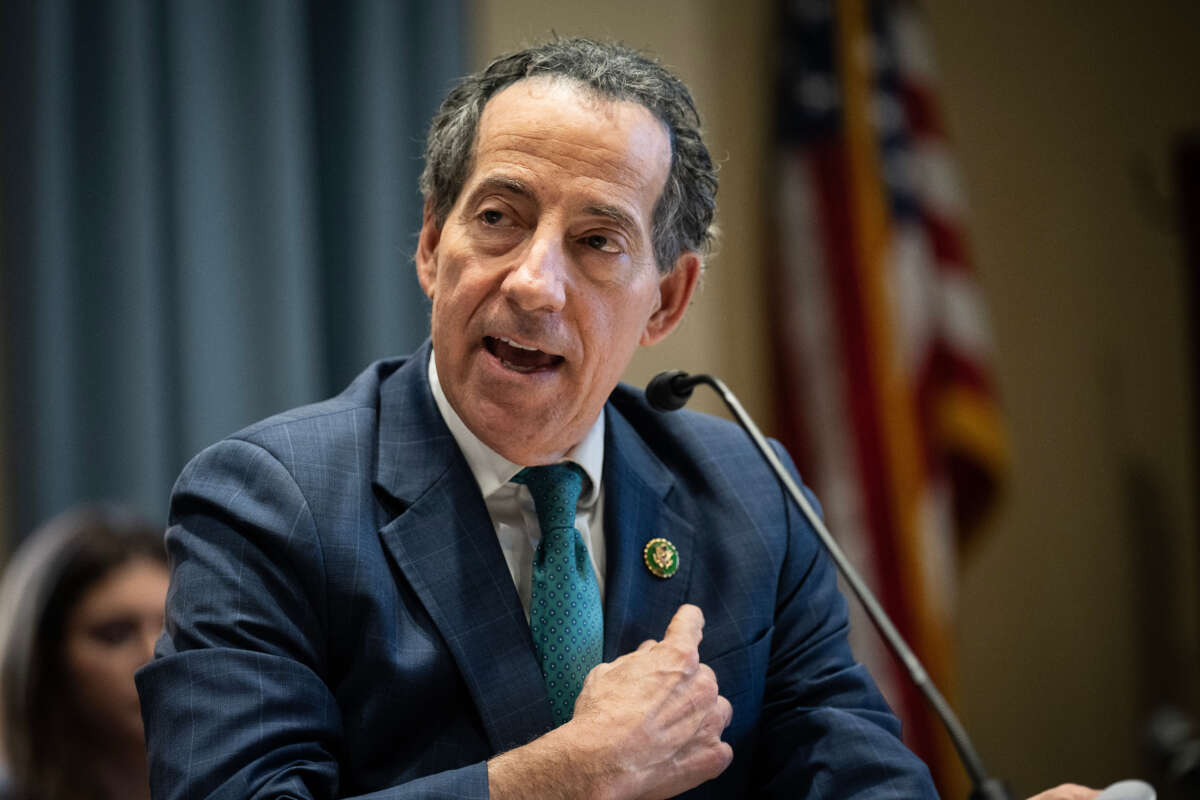The top Democrat on the House Oversight Committee has called on Supreme Court Justice Clarence Thomas to recuse himself from upcoming cases on Donald Trump’s eligibility on state ballots in the 2024 election.
In an interview on CNN’s “State of the Union” on Sunday, Rep. Jamie Raskin (D-Maryland) said that Thomas should “absolutely” recuse, citing Thomas’s wife’s involvement in the attempted coup on January 6, 2021.
“Anybody looking at this in any kind of dispassionate, reasonable way would say if your wife was involved in the big lie in claiming that Donald Trump had actually won the presidential election — had been agitating for that and participating in the events leading up to January 6 — that you shouldn’t be participating,” he said.
“He absolutely should recuse himself,” Raskin added. “The question is, what do we do if he doesn’t recuse himself?”
On Thursday, Maine Secretary of State Shenna Bellows removed Trump from the state’s 2024 primary ballot based on Section 3 of the 14th Amendment, which states that a president who has engaged in insurrection or rebellion against the U.S. should not be allowed to hold office.
This followed the Colorado Supreme Court’s decision last month based on the same clause that Trump would not appear on the Colorado ballot. That decision has been appealed to the Supreme Court, and the justices are expected to take up the case.
Raskin, who is a constitutional scholar, pointed out on CNN that even conservative legal experts have compellingly argued that Trump is disqualified due to the 14th Amendment. Thus, the decision will be a crucial “test” for the self-identified textualists and constitutionalists on the Supreme Court bench to see if they agree with their purported values, Raskin said.
Trump’s trial over his federal charges in relation to his incitement of the attempted coup is slated for this March. However, conviction in that case isn’t necessarily required for Trump to be barred from running under the Constitution; as legal experts and a recent Congressional Research Service report have pointed out, the 14th Amendment does not require conviction for disqualification.
Earlier last month, Thomas also faced calls to recuse from another potential upcoming high profile case involving Trump’s ability to claim immunity from crimes committed while he was in office. The case stems from a request by special counsel Jack Smith for the Supreme Court to consider the claim.
Raskin, who was one of the leaders in Trump’s second impeachment inquiry, also pushed back against Trump’s argument that he is immune from punishment for crimes he committed in office.
“It’s hard to think of a more un-American or anti-Constitutional argument than the idea that the president can commit crimes while in office with impunity,” Raskin said.
“It’s also explicitly rejected by the text of the Constitution,” he added. “It says that, even if somebody’s being impeached, still later they can be the subject of indictment, trial, decision and punishment. So it’s right there in black and white in the Constitution. There’s no presidential immunity for crimes that you commit while you’re in office. And, in fact, one of the arguments that Trump’s defenders were making during the impeachment trial was, ‘well, he’s subject to criminal prosecution later.’”
